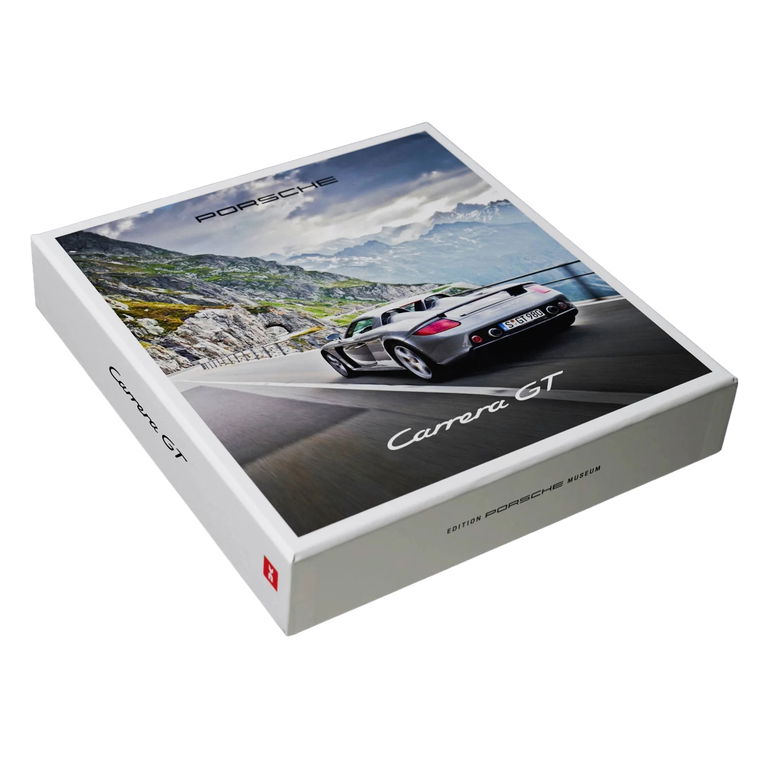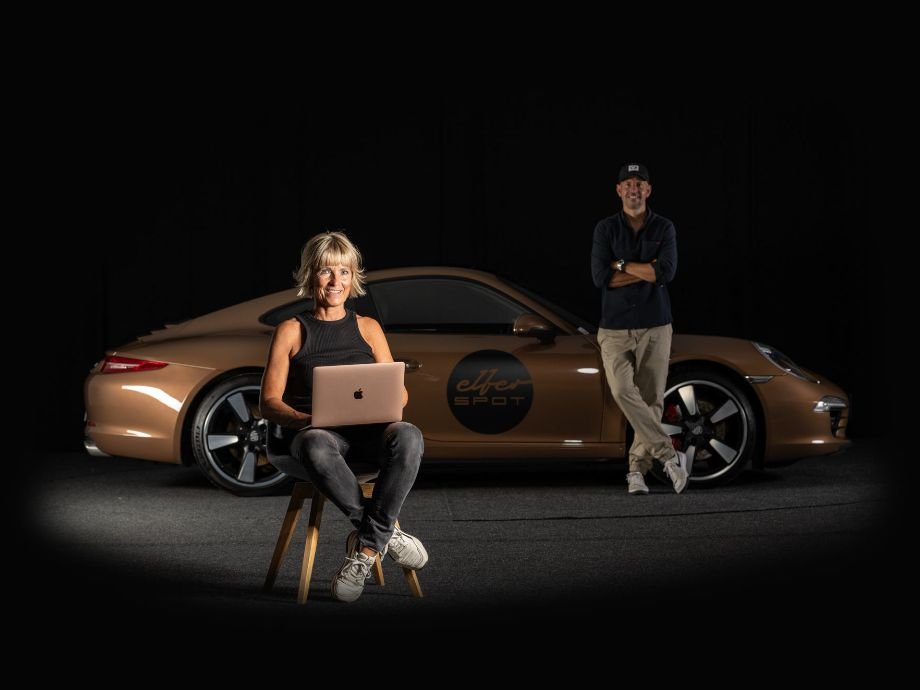Overall history of the model
Manufactured between 2004 and 2007, the Porsche Carrera GT is widely viewed as one of the greatest sports cars ever made. The attention to detail is breathtaking and, as a piece of engineering, the Carrera GT racked up many firsts.
Starting life as an unwanted Formula One engine, the Carrera GT’s stunning V10 had undergone over 10 years of development by Porsche engineers. This gem of an engine needed something very special to accommodate it and, with the chassis that Porsche built around it, something special is what it got!
The Carrera GT was a pioneer in what a production car could deliver. With the use of carbon fibre for both the tub and the subframe, a ceramic composite clutch and carbon ceramic brakes, this truly was a trail blazer that guided the direction of future production supercars.
Cutting edge for the time, the Carrera GT was designed for driving enthusiasts so, unlike other hypercar contemporaries, Porsche decided to go with a fully manual gearbox. This makes the Carrera GT one of the last analogue supercars ever produced. With its race breeding, beautiful styling and unbelievable attention to detail, driving the Carrera GT is a sublime experience.
Porsche Carrera GT Deep Dive
The story of the Porsche Carrera GT starts in the early 1990s. Porsche had designed a 3.5 litre V10 for the Footwork Formula One team, but Footwork pulled out of the partnership leaving Porsche with an engine but no car. After the decision to use the engine in a future prototype, Porsche engineers further developed the V10 with a view to racing it at Le Mans. At the end of the 90s however, Porsche decided to invest their money in producing a 4×4 (the Cayenne) and so the Le Mans project was binned. Again, Porsche was left with a V10 that had years of development behind it but no car in which to put it.
Then in 2000 Porsche revealed the Carrera GT concept car at the Paris Motor Show. Interest was so high that Porsche decided to put the car into production and build it around the erstwhile V10, creating the Carrera GT. By 2007, the car had been so popular that 1,270 Carrera GTs had been produced—every one of which was sold on pre-order before they were even manufactured.
Engine and performance
Starting out as a 3.5 litre, this V10 engine grew into a 5.7 litre masterpiece by the time of manufacture. Engineered to be used in motorsport it is built purely for performance. This is a lightweight (215kg) high revving motor, reaching peak power at 8,000rpm and redlining at 8,200rpm. The engine pulls relentlessly from 3,000rpm all the way up to 8,200rpm with no flat spots in the power delivery. Producing 604bhp, 435lb-ft of torque, reaching 62mph in 3.7 seconds and topping out at 206mph, this truly is a hypercar and one of the first to be named such.
Chassis
The Carrera GT is very light, weighing just 1,250kg. The chassis is cutting edge, and the first to have both the tub and sub frame made from carbon fibre. The engine is bolted directly to the carbon frame and dry sumped to lower the centre of gravity. Fuel tanks are set either side of the engine in order to distribute weight evenly. Weight is also saved through the lightweight seats and carbon fibre roof.
Technology
The Carrera GT may be fitted with an analogue manual gearbox but that doesn’t mean the transmission isn’t state of the art. The lightweight racing clutch is made of multi-plate carbon ceramic. The clutch’s small diameter gives instantaneous rev gain and enables Porsche to mount it low in the car, which also helps to lower the centre of gravity.
Borrowing heavily from race car design, the Carrera GT has wishbone suspension with inboard dampers. The suspension units themselves are made from structural carbon fibre. The brakes are carbon ceramic with mono-bloc callipers giving huge stopping power. There is a carbon fibre active spoiler which raises up at 78mph to increase downforce, and the huge air scoops on each side of the car channel cooling air to the V10.
Drive
Look at the Carrera GT from the outside and you’ll see that Porsche have used the mantra of ‘form follows function’, making it one of the prettiest cars Porsche have ever made. Inside, you’ll find it’s very comfortable and beautifully crafted. This might be a driver’s car, based on race car engineering, but it is very civilised in the cabin. The attention to detail is stunning even down to the gear knob—it’s made from balsa wood in homage to the legendary Porsche 917. In fact, this is a very usable car for everyday driving.
Don’t forget though, it’s the fastest road-going car Porsche had ever made at the time. Start it up and you’ll be struck by how mechanical the car sounds. Set off and everything feels instant and precise, from the gear changes to the pedal position. This may not be quite as powerful as its contemporary hypercars, such as the Ferrari Enzo or the Pagani Zonda but the driving experience is pure and exquisite. The noise from the V10 is beautiful and because there are no electronic gizmos getting in the way, you’ll feel totally connected to the car and the road. This is most definitely a driver’s car and possibly the ultimate analogue driving experience!





























